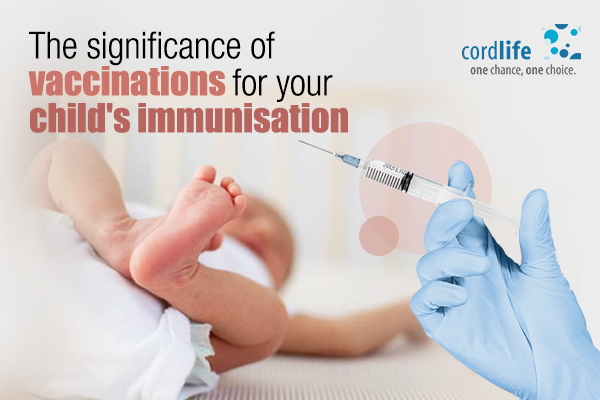Table of Contents
- Know the Reasons to Vaccinate Your Child
- Vaccines Are Safe and Effective
- Vaccination Can Save Your Little One’s Life
- Child’s Immunisation Acts As a Protective Shield For Your Family Members
- Immunisation Now Can Be Gentle On Your Pockets Later
- Understand Your Child’s Vaccination Schedule
- Things To Remember While You Take Your Child For Vaccination
During the stage of infancy, your little one is most likely to catch various types of diseases as well as infections. You will notice your child will fall sick more often. It could be anything from a stomach ache to his or her sniffling from cold. Basically, at this stage, your sweet little munchkin’s body is not ready with all the defense mechanisms. Your childs immunisation system which protects the body from different types of diseases is still not fully developed.
Breastfeeding your little one can keep your baby healthy, but you can also keep your little one’s immunity strong by vaccinating him or her.
Know the Reasons to Vaccinate Your Child
Since your baby’s birth, you wish to do everything to ensure that your little one is safe from various diseases and infections. Undoubtedly, vaccination is the best way to do that. Why? Here are a few reasons for that:
Vaccines Are Safe and Effective
Scientists and healthcare professionals review the vaccines carefully before they are scheduled for shots. They are safe and effective. Severe allergic reactions as well as side effects as a result of vaccination and immunisation are also less likely.
Vaccination Can Save Your Little One’s Life
As new parents you might not be able to figure out the difference between vaccination and immunisation. Well! The act of introducing a vaccine into your baby’s body means you can keep your little one safe from many vaccine-preventable diseases. After all, vaccines are essential antigens that recognise your child’s immunisation system and actively eradicate serious diseases. On the flip side, child’s immunisation is a process through which your baby remains safe against many serious diseases through vaccination. Some diseases like Polio have been very harmful to many Indian children in the last two decades. They have even brought about death. In fact, in the last two decades, India has made significant progress in improving your baby’s health, and in 2014, India was certified polio-free.
Child’s Immunisation Acts As a Protective Shield For Your Family Members
In December 2014, the Indian Government launched a National Immunisation Programme known as “Mission Indradhanush”. This programme included a series of vaccines – Pneumococcal Conjugate Vaccine (PCV), Rotavirus Vaccine (RVV), and measles-rubella (MR). Not just that! These immunity vaccines can keep your family safe and prevent the diseases – pneumonia, meningitis, hepatitis B, tuberculosis, measles; from spreading to loved ones among your family and friends.
Immunisation Now Can Be Gentle On Your Pockets Later
If somehow you miss out on the vaccination schedules of your baby, that may not be very safe for your little one’s health. As treating such diseases later may not be very pocket-friendly for you. In that case, there are many government vaccination and immunisation programs arranged for your child free of cost.
Having said that, ensure that you do not forget to vaccinate your child and keep your child’s life safe for a long time.
Understand Your Child’s Vaccination Schedule
Some of the common vaccines are for childhood tuberculosis, hepatitis B, etc. So, here is a series of vaccination schedules to keep you informed on what kind of diseases you can keep your child safe from.
| Vaccines | Baby’s Age | Dose |
| Childhood Tuberculosis | After 1 month of your baby’s life | 0.1 ml |
| Hepatitis B | At birth | 0.5 ml |
| Rotavirus Diarrhoea | 6, 10 and 14 weeks | 5 drops |
| Measles Rubella | 1st dose – 9 to 12 months2nd dose – 16 to 24 months | 0.5 ml |
| Diptheria, Pertusis and Tetanus | 1st booster – 16 to 24 months 2nd booster – 5 to 6 years of child’s life | 0.5 ml |
| Pneumococcal Pneumonia | 1st dose – 6 weeks 2nd dose – 14 weeks Booster – 9 months | 0.5 ml |
Things To Remember While You Take Your Child For Vaccination
Try to follow the vaccination schedule as they are listed. Along with this, remember that:
- You must inform your child’s doctor if your baby has fever. The doctor may reschedule the date of vaccination.
- Vaccination is no doubt painful. But the doctor might make the painless options available for you too. As new parents, it is your choice whether you want to go for the painful or painless vaccines.
- It is normal for your little one to feel feverish after the shot has been given. To bring down the body temperature of your baby, you can sponge bath your baby. Revisit the paediatrician if the fever persists for 1 or 2 days.
- Do not forget to take a family member or spouse along with you when you’re going for your little one’s vaccination. He or she can keep your child distracted. You can even carry your child’s favourite toy.
- Your child specialist will give you a vaccination schedule card, where the next vaccine date will be mentioned.
Taking care of your newborn begins with the right vaccination shots and proper nutrition. Along with this if you require any other information on baby care don’t forget to follow our blog page.
